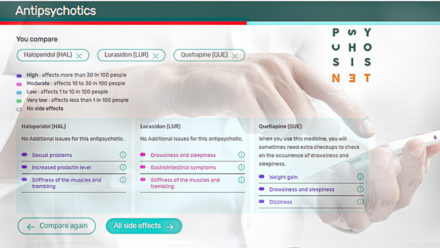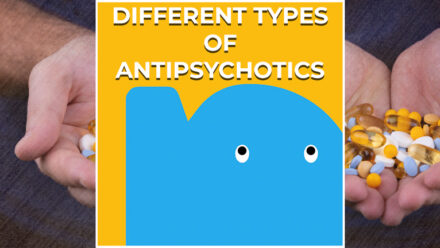
The proper and safe use of antipsychotics is important to prevent unnecessary (additional) side effects and unpleasant withdrawal symptoms when quitting the medication.
What is the best way to take antipsychotics?
Antipsychotics are best taken the following ways:
- Always take your (oral) medication at the same hour of day. Most people take antipsychotics in the evening, because they can make you a little sleepy;
- Everybody forgets to take their medication sometimes, but try to keep this to a minimum. If you miss a dose, you can still take it up to eight hours before you would take the next dose;
- Depots/injections need to be taken regularly, according to a fixed schedule. There are special depot clinics for this;
- Stick to the prescribed dosage. Always consult your therapist first before changing your dosage, even if you are having a lot of side effects;
- Request a repeat prescription with your doctor in time, so you do not run out of antipsychotics;
- Be careful with drugs and alcohol in combination with antipsychotics. Do you drink? Then talk to your doctor about this;
- When you have just taken antipsychotics or when your dosage has been increased, it is better not to drive. Do not get behind the wheel when you are feeling drowsy or sleepy or your vision is blurred;
- NEVER suddenly stop taking your medication. You are putting yourself at unnecessary and great risk of another psychosis.
External websites:
- Medline Plus Information about specific medicines and patient leaflet




